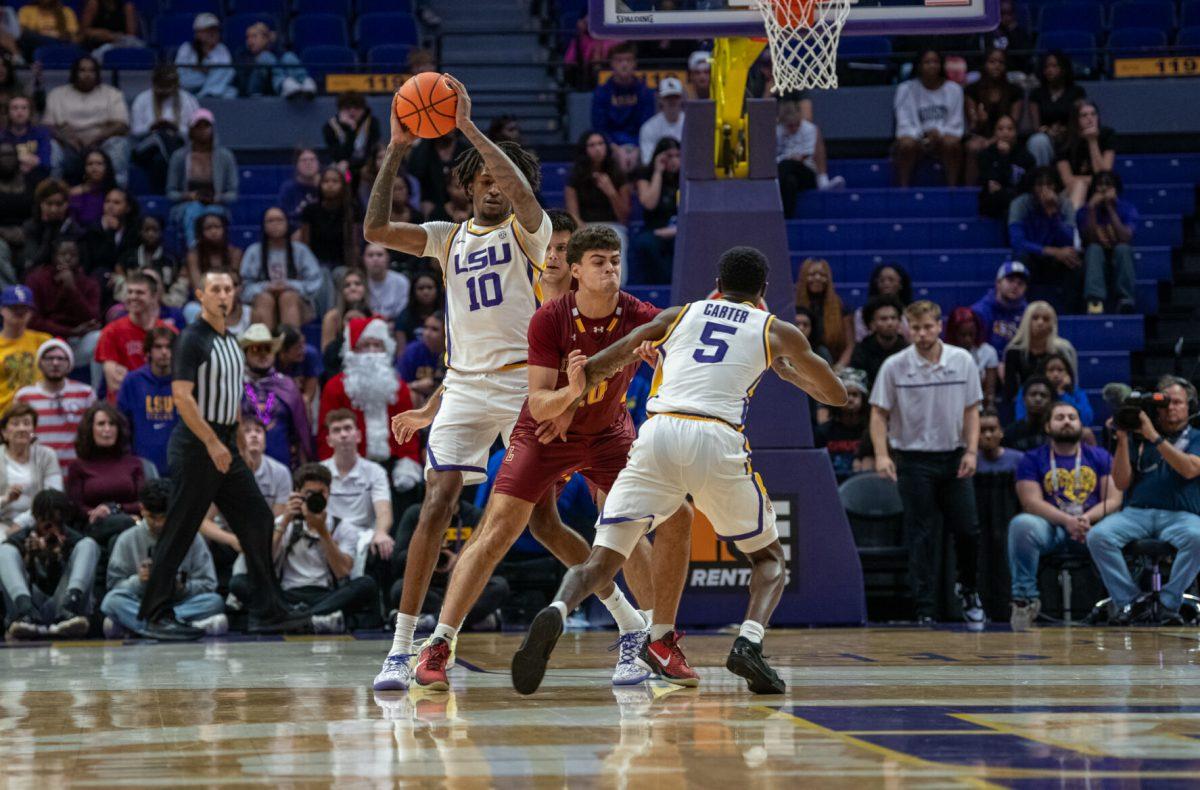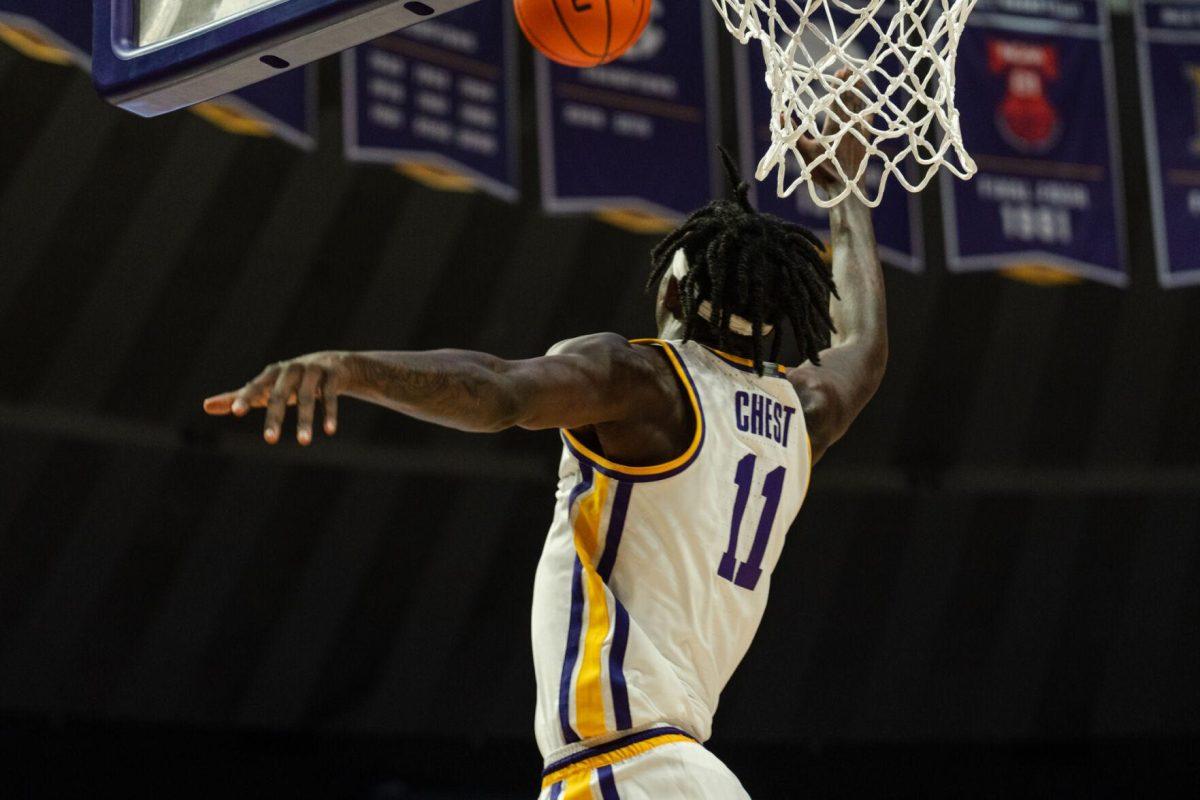Chancellor Sean O’Keefe spoke to students in Free Speech Alley on Thursday about a variety of their concerns during his second Chat with the Chancellor.
Students asked O’Keefe about the University’s stance on the newly proposed football ticket-distribution policy, TOPS standards and the Master Plan.
The new ticket policy, which will go into effect next fall — in time for football season — gives sixth-year seniors and students with a cumulative grade point average of 2.0 or lower the same priority for football tickets that freshmen have. The policy also gives student organizations one ticket per person — instead of the opportunity to receive a second guest ticket as they could before.
Josh Pejsach, an international trade and finance senior, said he does not like Student Government’s new policy.
“It’s not fair to the students who have put their time in at the University,” Pejsach said.
O’Keefe said he understands the disagreement students may have, but the new policy was not his decision to make.
“The students policed themselves this time,” O’Keefe said to Pejsach. “SG decided on the policy after a heated debate, and this is a good opportunity for students to see how the process works.”
Pejsach said he thought O’Keefe avoided addressing the issue.
“He is playing the role of a great politician,” Pesach said after his conversation with O’Keefe.
Patrick Schexenailder, a chemistry graduate student, spoke to O’Keefe about the University’s position on increasing the standards for receiving TOPS.
TOPS requires high school students to maintain a 2.5 GPA and achieve a 20 on the ACT.
“I told [O’Keefe] that I think the standards do not need to get any easier,” Schexenailder said. “Where the standards are right now is getting the University where it needs to be academically.”
O’Keefe said he agrees that the current standards are helping the University’s students increase their academic performance.
“The TOPS standards have had an amazing effect on students’ academic success,” O’Keefe said to Schexenailder. “It’s been the right challenge for students to motivate them, and that needs to remain in place. I don’t want to mess with that.”
Schexenailder also asked O’Keefe about the status of the University’s Master Plan. Part of the plan would make the campus more pedestrian friendly.
“There are too many vehicles on campus,” Schexenailder said. “I think the University would be a lot better off if they closed campus to vehicles.”
One of the goals outlined in the Master Plan is to “enhance a pedestrian-oriented core with peripheral vehicle access.”
O’Keefe said the Master Plan is making progress towards a pedestrian-friendly campus, but it is taking time to achieve that goal.
“The Master Plan has a lot of thought put into it, and there is a definite logic to the plan,” O’Keefe said. “The problem is that it moves too slowly. We want to accelerate the process, but we need to find finances to do that. That’s been difficult to do so far.”
O’Keefe said he is working on contacting “friends of the University” to raise funds for many of the University’s programs, including the Master Plan.
“LSU has a very small amount of endowments when compared to other, private universities,” O’Keefe said. “With as much support as LSU has around the country, we should be able to receive more donations, and I am working to do that.”
Though O’Keefe said some of the concerns brought to him by students will require him to do further research, he said he thought his discussions showed him which issues on campus students are most concerned about.
“It’s great to see students voicing thoughtful and interesting concerns,” O’Keefe said. “I am constantly uplifted by these discussions.”
O’Keefe addresses TOPS, tuition concerns
April 21, 2005





